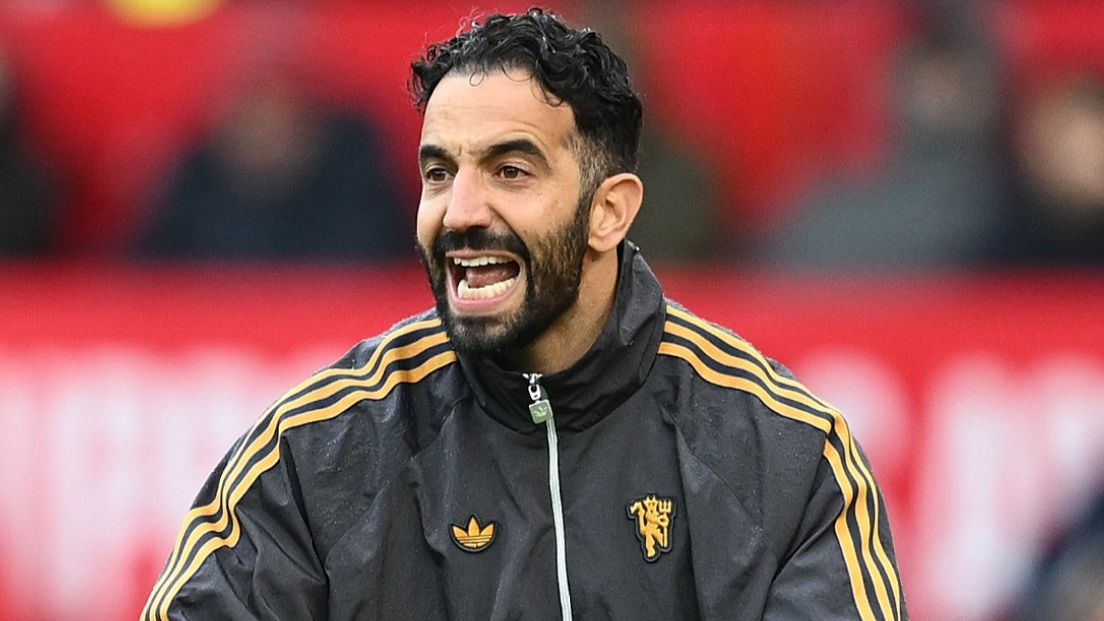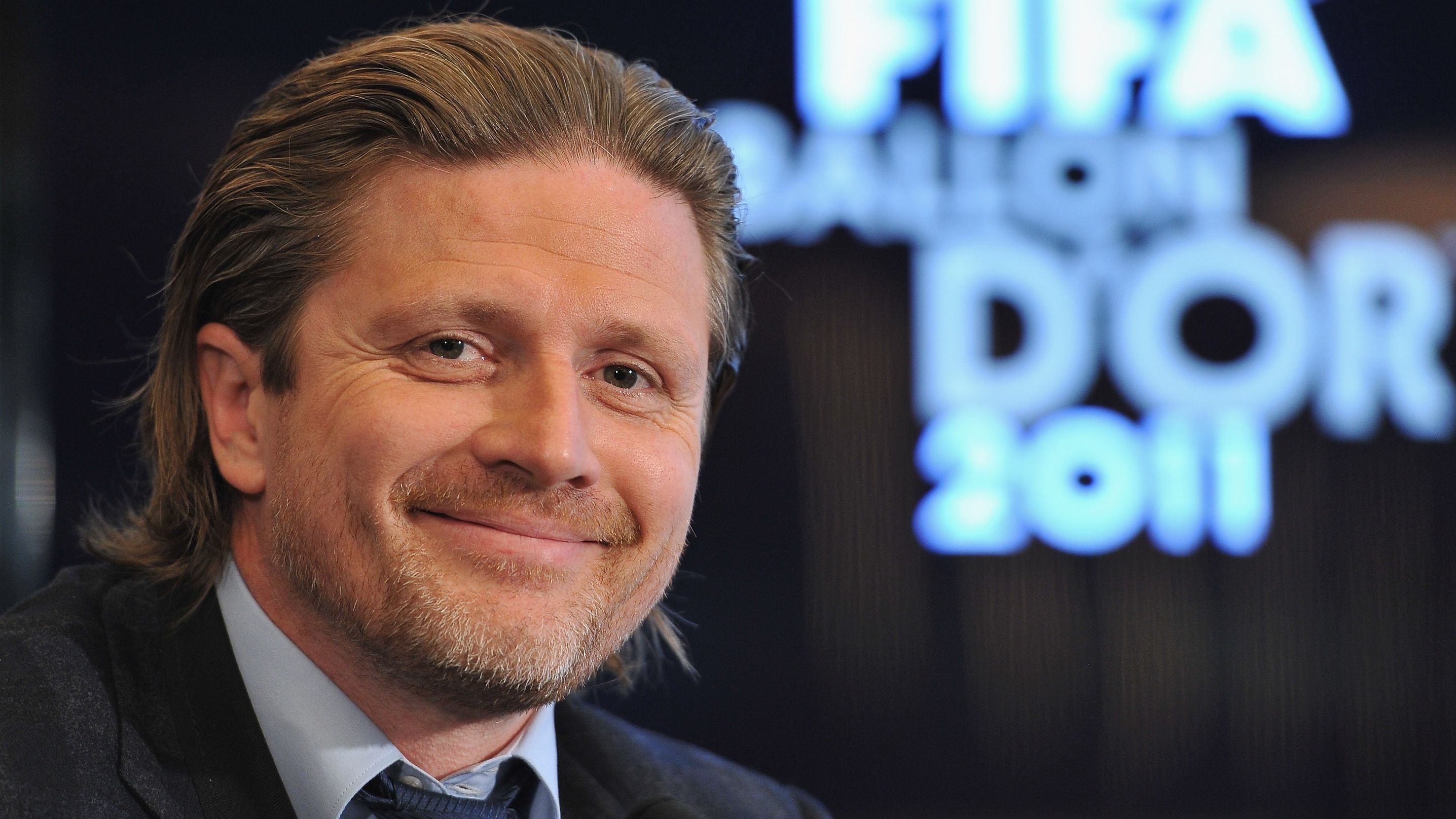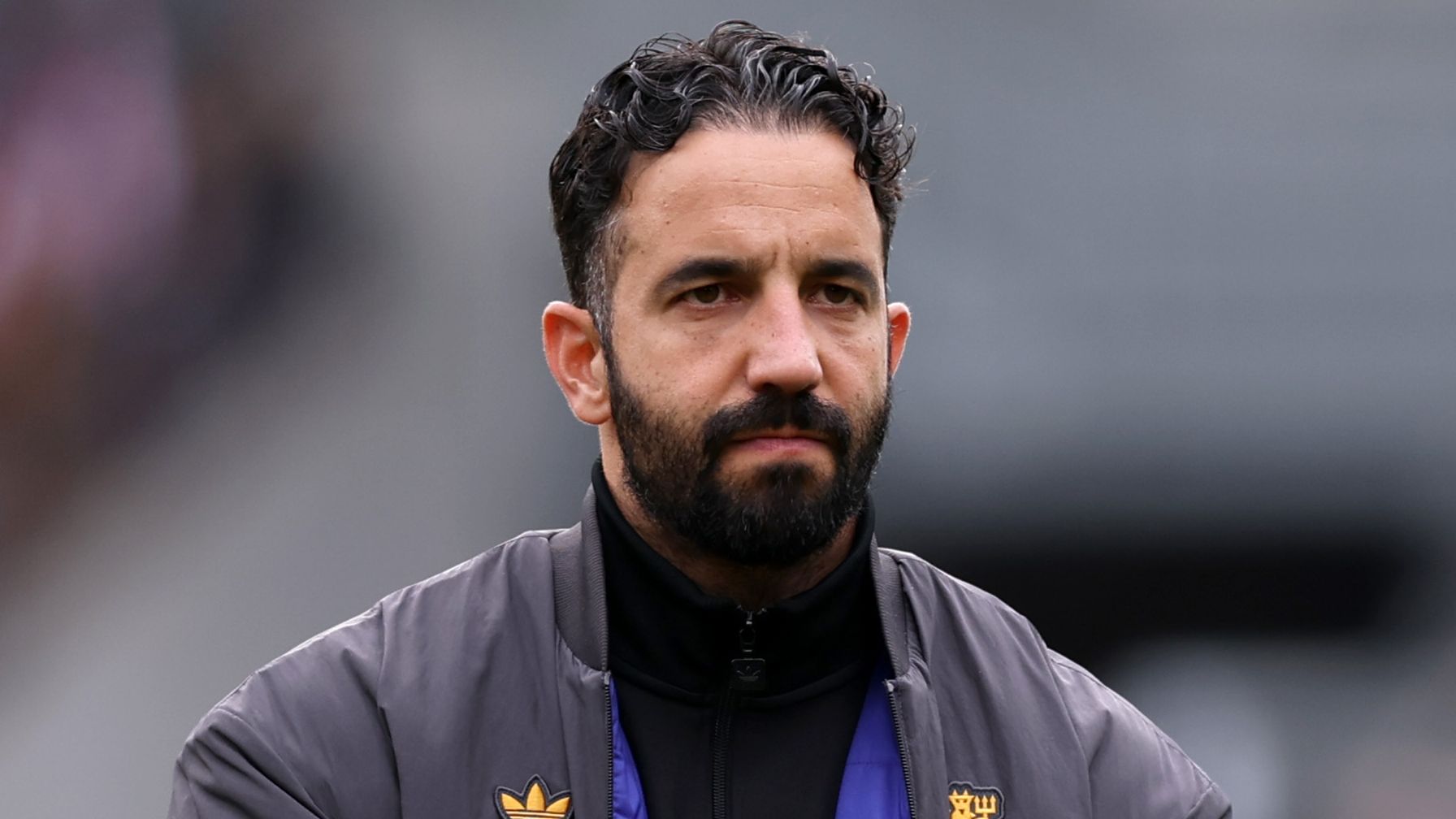


Navigating Premier League Scrutiny: The Real Challenges Facing Ruben Amorim at Manchester United
In the heart of Manchester United‘s current struggles, a veteran player is publicly questioning the decisions of their present coach, underscoring how outside opinions are amplifying the squad’s woes. This in-depth analysis delves into the escalating pressure on Ruben Amorim and its effects on the team’s standing in the Premier League, pulling from recent comments and professional opinions to uncover the underlying problems.
Ruben Amorim Under Fire as Manchester United Struggles in the Premier League
With Ruben Amorim at the helm, Manchester United continues to wrestle with integrating his defensive strategies, especially the three-back line, which hasn’t produced steady success in the Premier League. After ending last season below the top spots and missing out on European play, the 2025-26 campaign has shown minimal progress, sparking greater demands and accusations toward the former Sporting manager and his players. Amorim has admitted to this criticism, identifying it as a major contributor to the team’s subpar performance.
How Amorim is Addressing External Pressures
Before the international break-when Manchester United sat in 10th place with just three wins from their first seven games-Ruben Amorim spoke out about how media stories are seeping into the locker room. In his comments, he noted: “The formation isn’t the core issue. It’s about the details and our general approach that count. I understand the external guesses, such as how this team might perform with another system. Maybe we’d pick up more points. However, without fixing fundamental problems, shifting to a 4-3-3 or 4-4-2 won’t bring titles-that’s what I’m telling my squad. Not the media; I’m not aiming to alter your perspectives, but my players are taking in all this outside noise, particularly when victories are scarce. They need to have faith in me since I’ve reviewed more Manchester United games than anyone else here.”
Emmanuel Petit’s Critical Assessment of Ruben Amorim’s Tactics
As a former player for Arsenal and Chelsea, Emmanuel Petit brings deep insight into the rigors of succeeding in the Premier League. His achievements include a championship and FA Cup with Arsenal, plus time at Barcelona and Chelsea. During an interview with Boyle Sports, a site focused on contemporary betting in football, the French ex-pro voiced his strong disagreement with Ruben Amorim‘s views.
Petit’s Insights on Managing Intense Criticism
Petit maintains that steering a giant like Manchester United naturally involves heavy examination and skepticism, which shouldn’t excuse poor results. He said: “This is the first time I’ve heard a manager attribute his team’s failures to outside influences. It’s ridiculous. Ruben Amorim is utterly misguided, and I bet his players see it too. How can he say that while leading Manchester United? If you can’t deal with the criticism that accompanies top-tier teams and high wages, you should find another job. Avoid the major leagues if that’s your stance.”
Key Takeaways from Petit’s Career Experiences
Drawing from his past, Petit explained: “Upon hearing those remarks, I wondered, ‘Is he serious?’ I’ve played for top clubs with immense expectations. During matches, I never sought to shift blame. You take responsibility for your efforts and remain resolute. Of course, criticism hurt and sometimes seemed unfair, but it’s inherent to the sport-you figure out how to handle it.” He added: “The thrill of football lies in controlling your destiny; you could suffer a defeat one game and claim glory the next. The chance to rebound is always present, so grab it.”
Strategies to Overcome Manchester United’s Ongoing Issues
In addition to his feedback, Petit suggested paths for the troubled Manchester United coach to advance, recommending he dismiss distractions and consider tactical adjustments if necessary. He went on: “Tune out the social media buzz from players. The whole unit, including the coach and team, must band together and shift the vibe. There’s an evident lack of determination and personal drive at Manchester United that’s stalling improvement. Honestly, if you can’t rise to the occasion, look inward and acknowledge, ‘This isn’t for me because of my doubts.’ That’s the truth, so act on it.”
Manchester United’s Forthcoming Premier League Challenges
The future looks demanding for Manchester United, as their upcoming Premier League match will see them face the current title holders, Liverpool, at Anfield. Losing could increase the distance to nine points behind the frontrunners, yet positively, they’re only four points from securing Champions League qualification, showing a minor enhancement over last year. Nonetheless, Ruben Amorim remains closely watched, with key figures like Sir Jim Ratcliffe and INEOS keeping a keen eye as the situation intensifies.
Exploring Ruben Amorim’s Leadership at Manchester United
In the dynamic environment of the Premier League, coaches such as Ruben Amorim are constantly evaluated, particularly when in charge of a legendary club like Manchester United. Amorim, who assumed the role with lofty goals, has spoken openly about the overwhelming media attention on the team’s persistent problems, including erratic play, player injuries, and transfer difficulties. This focus on press reports has ignited discussions among football followers and analysts.
Most recently, a respected Premier League icon entered the debate, delivering a sharp analysis of Amorim’s statements. This interaction illustrates how news stories can influence views of a team’s hardships, making it essential to examine the details for a clearer picture of contemporary football dynamics.
Perspectives from the Premier League Icon
A well-known Premier League figure, celebrated for their remarkable history and thoughtful analysis, openly challenged Amorim’s assertions. They contended that although Amorim’s irritation with exaggerated media pieces is understandable, openly criticizing journalists might worsen the problems he’s encountering. For(INT example, the icon noted that media exposure, despite its criticism, helps in maintaining accountability for clubs and connecting with fans globally.
This commentary highlights a larger discussion in the Premier League regarding how leaders manage their public image. Terms like “Premier League icon critiques” and “Ruben Amorim media scrutiny” indicate the sustained interest in these topics, as audiences seek fair insights into Manchester United‘s instability. The icon stressed that Amorim’s method might appear as avoiding accountability, especially in a season filled with defensive errors and strategic flaws.
Delving further, the icon revealed that their time in the Premier League taught them the importance of treating media as a partner rather than a foe. As an example, they described how deliberate media engagement boosted team spirit during crucial games, implying that Amorim could gain from adopting a more cooperative approach.
Main Aspects of the Commentary
- Media’s Impact on Heightening Issues: The icon pointed out that news sources frequently exaggerate Manchester United‘s difficulties to attract attention, but coaches like Amorim should prioritize internal fixes.
- Risks of Backlash for Amorim: Questioning the media could distance reporters who might offer favorable stories, potentially harming sponsorships and supporter loyalty.
- References to Former Coaches: The icon compared Amorim to legends like Sir Alex Ferguson, who expertly handled media to gain an advantage.
Such detailed examination assists readers in understanding the significance of these critiques within the Premier League framework.
Examining Media Portrayals of Manchester United’s Difficulties
News coverage of Manchester United has turned into a mixed blessing, with reports breaking down every setback or player move. Amorim’s remarks probably arose from annoyance with articles that depict the club as always in turmoil, even after minor triumphs. The Premier League icon’s reply provides more nuance, asserting that this reporting, though occasionally biased, reflects the intense competition of high-level football.
In this setting, phrases such as “Manchester United difficulties” and “Ruben Amorim critiques” become key search terms. Followers often read pieces like this to explore how journalism affects athlete output and club tactics. For Amorim, maneuvering through this terrain means finding a balance between openness and caution, as too much visibility can place extra strain on the players.
The Influence of Media on Football Stories
- Dual Effects: Media can highlight emerging Manchester United talents, enhancing their reputations, but it may also foster a harmful atmosphere that undermines player assurance.
- Instances from Latest Games: When United faltered in matches, media summaries emphasized personal mistakes, which Amorim labeled as excessively severe-yet the icon argued that this oversight encourages growth.
This part demonstrates the complex connection between journalism and teams, helping readers connect with the current events.
Advantages of Candid Debates in Football
Although feedback from the Premier League icon may appear severe, it brings several positives that strengthen the football community. Initially, these exchanges promote openness, enabling fans and investors to grasp the burdens on managers like Amorim. In the Premier League, where choices are closely inspected, such dialogues can spark creativity and improved media tactics for clubs in similar predicaments.
Furthermore, open critiques create educational moments. Expressions like “Premier League icon” and “Manchester United media scrutiny” show how these conversations attract worldwide notice, possibly boosting participation on sports platforms and sites. This exposure can lead to business gains, like increased audiences for games and associated material.
Useful Advice for Coaches in the Public Eye
- Develop a Communication Plan: Coaches ought to plan their replies ahead, concentrating on upbeat elements to guide discussions, as the icon suggested from their experiences.
- Be Selective in Interactions: Opt for interviews carefully to prevent overexposure, giving the team space to concentrate during tough times.
- Utilize Social Platforms: Share insider views on social media to convert skeptics into allies, similar to how various Premier League teams have achieved this effectively.
These recommendations offer practical guidance, inspired by actual Premier League situations, to help readers learn from Amorim’s circumstances.
Historical Examples from Football
Reviewing historical examples from the Premier League can provide useful background to the icon’s feedback. For example, during José Mourinho’s period at Manchester United, he often conflicted with the media over reports of team issues, much like Amorim’s recent comments. The icon observed that Mourinho’s tactics resulted in immediate wins but eventual exhaustion, stressing the importance of a calmer response.
Another instance is Arsène Wenger’s era at Arsenal, where he managed media controversies by prioritizing the process over outcomes. These illustrations reveal how Premier League icons’ opinions often derive from their own journeys, supplying a guide for today’s leaders. By reviewing these, readers can identify patterns related to “Ruben Amorim’s views on media scrutiny” and wider trends in sports management.
Insights from Direct Experiences
Based on recorded narratives, numerous Premier League personalities have discussed their media encounters in books and chats. The icon, for one, talked about how initial career media clashes influenced their management style, drawing similarities to Amorim’s present challenges. This perspective highlights the personal side of football, making the subject more approachable and interesting for audiences.
In essence, the continuing conversation about media and Manchester United‘s obstacles keeps Premier League enthusiasts engaged, merging criticism with helpful suggestions. (Word count: 854)
Understanding Ruben Amorim’s Background in Football Management
Ruben Amorim has emerged as a key figure in modern football, particularly with his tactical prowess and ability to navigate high-pressure environments. As a former manager at Sporting CP, Amorim gained recognition for his innovative strategies and youth development programs, which have drawn interest from top Premier League clubs like Manchester United. His remarks on media scrutiny highlight the challenges managers face when dealing with public and press expectations, especially amid Manchester United’s ongoing struggles in the league standings.
This analysis delves into how a renowned Premier League figure, such as former Manchester United captain Gary Neville, interprets these comments, offering insights into the broader implications for football management and team performance.
Key Remarks from Ruben Amorim on Media Pressure
Amorim’s statements often focus on the intense media spotlight that follows clubs like Manchester United, where every loss or poor performance becomes headline news. In recent interviews, he emphasized how excessive scrutiny can affect player morale and strategic decisions, potentially exacerbating a team’s struggles in the Premier League. For instance, Amorim has pointed out that media narratives can create a cycle of doubt, making it harder for managers to implement long-term plans.
This perspective is particularly relevant in the context of Manchester United’s challenges, including inconsistent results and injuries to key players. Premier League experts suggest that such scrutiny isn’t unique to United but is amplified by the club’s global fanbase and historical success.
The Impact on Team Dynamics
One major aspect of Amorim’s remarks is how media coverage influences internal team dynamics. Constant criticism can lead to heightened stress for players, affecting their focus during matches. In analyzing this, experts note that managers like Amorim advocate for a balanced approach, where media interactions are managed to protect the squad’s mental health.
- Player Performance Under Scrutiny: High-profile players often face personal attacks in the media, which can lead to decreased confidence and errors on the pitch.
- Strategic Adjustments: Amorim suggests that managers might need to adapt tactics mid-season to counter negative press, such as focusing on defensive solidity to build momentum.
- Long-Term vs. Short-Term Pressures: The remarks underline the tension between immediate results and building a sustainable team, a common theme in Premier League analyses.
In-Depth Analysis by a Renowned Premier League Figure
Gary Neville, a celebrated Premier League figure with extensive experience as both a player and pundit, has provided thoughtful breakdowns of Amorim’s comments. Neville argues that media scrutiny is an inevitable part of managing at a club like Manchester United, but it can be turned into a tool for growth. In his views, Amorim’s emphasis on shielding the team from external noise aligns with successful strategies used by past United managers like Sir Alex Ferguson.
Neville highlights how Amorim’s approach could help address Manchester United’s current issues, such as their mid-table position and fan dissatisfaction. By prioritizing internal communication and tactical flexibility, managers can mitigate the effects of media hype, fostering a more resilient squad.
Benefits of Publicly Addressing Media Scrutiny
Addressing media scrutiny openly, as Amorim has done, offers several benefits for football managers and teams. Firstly, it humanizes the role of a manager, showing fans and analysts the real challenges behind the scenes. This transparency can build empathy and reduce unfounded criticism.
- Enhanced Fan Engagement: When managers like Amorim share insights, it strengthens the bond between the club and its supporters, potentially leading to more patient backing during tough times.
- Opportunities for Positive PR: Using platforms to reframe narratives can help redirect focus to positive aspects, like youth academy successes at Manchester United.
- Mental Health Awareness: Amorim’s stance promotes discussions on player well-being, encouraging clubs to invest in support systems that improve overall performance[başvurmak:[başvurmak:https://www.google.co.kr/imghp?ogbl].
These benefits are particularly valuable in the Premier League, where media presence is omnipresent, helping teams like Manchester United to navigate their struggles more effectively.
Practical Tips for Managers Facing Similar Scrutiny
For aspiring or current managers dealing with media pressure, incorporating practical tips based on Amorim’s experiences can make a difference. Start by developing a media strategy that includes controlled interviews and social media guidelines to limit exposure during critical periods.
Building Resilience in the Squad
One effective tip is to conduct regular team sessions focused on mental preparation, drawing from case studies of clubs that have overcome similar challenges. For example, Liverpool under Jurgen Klopp faced intense scrutiny early in his tenure but turned it around by fostering a “us against the world” mentality.
Case Studies from Premier League History
In examining case studies, we see how managers like Arsene Wenger at Arsenal dealt with media backlash during title droughts. Wenger’s approach involved maintaining a consistent philosophy despite external pressures, which eventually led to long-term success.
- Focus on Internal Metrics: Track player performance data internally rather than reacting to media rankings, ensuring decisions are based on facts.
- Media Training for Players: Implement sessions where players learn to handle interviews, reducing the risk of controversial statements that fuel scrutiny.
- First-Hand Experience Insights: From Neville’s own career, he shares that ignoring media noise allowed him to concentrate on training routines, emphasizing the importance of routine and preparation in high-stakes environments.
These strategies, inspired by Amorim’s remarks, can help managers at clubs facing Premier League struggles to maintain focus and drive improvement.
The Role of Tactical Innovation in Overcoming Struggles
Amorim is known for his tactical innovations, such as his 3-4-3 formation at Sporting CP, which adapted to counter opposition strengths. In the context of Manchester United, Neville analyzes how such approaches could alleviate media-driven pressures by delivering on-pitch results.
First-Hand Experience: Lessons from Premier League Veterans
Drawing from first-hand experiences of figures like Neville, we can see how tactical shifts, combined with addressing media scrutiny, led to comebacks. For instance, during United’s challenging seasons, emphasizing youth integration and squad rotation provided fresh perspectives and reduced burnout.
This section of the article highlights how blending Amorim’s insights with veteran analysis creates a roadmap for success, ensuring managers are equipped to handle the demands of Premier League football. With ongoing discussions around Manchester United’s path forward, such analyses remain crucial for fans and stakeholders alike.









